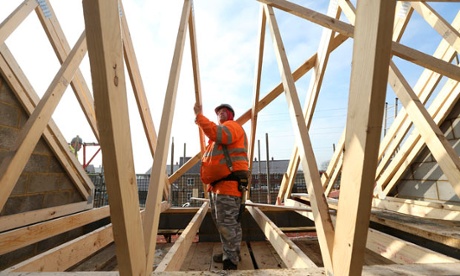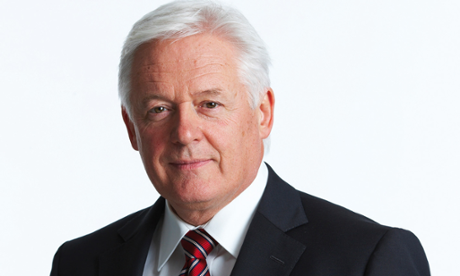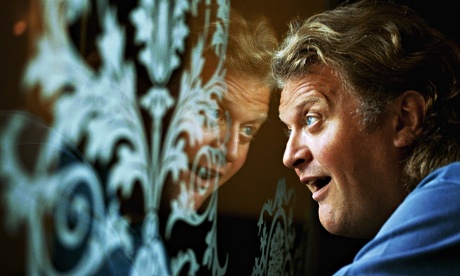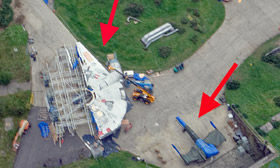
Live
Sort by:
- Latest first
- Oldest first
Auto update:
- On
- Off
The chancellor will also miss the G20 meeting.
George Osborne is not intending to attend the G20 finance ministers' meeting in Australia next weekend either
— Jill Treanor (@jilltreanor) September 12, 2014
A spokesman for the Bank of England has commented on the decision of governor Mark Carney to skip the G2o meeting in Australia and head back to the UK in time for the results of the Scottish vote.
He said:
The final decision was taken this week.
It is just prudent planning, and you would expect the central bank governor of the United Kingdom to be here for an occasion such as this.
Prudent planning a week before a vote we have known about for almost a year and a half...
Updated
Mark Carney will fly to Australia to chair a plenary meeting of the Financial Stability Board of bank regulators in Cairns on Wednesday, as planned.
He will then fly back to the UK earlier than planned, to make it in time for Thursday evening when the results of the Scottish independence referendum will start to roll in. Polling stations will close at 10pm.
Carney originally planned to remain in Australia to attend a meeting of G20 finance ministers and governors’ meeting over the weekend of 20-21 September. The governor will be represented by his deputy for financial stability Sir Jon Cunliffe.
Bank of England chief misses G20 meeting in Australia to be in UK for Scottish vote
Breaking: Bank of England governor Mark Carney will miss a G20 central bank governors meeting in Australia next week so that he is the UK when the results of the Scottish referendum come in.
Updated
The pound has had a volatile week against the dollar, as momentum has swung from the Scottish independence yes campaign to the no campaign, and the latest poll today leaves the vote too close to call.

Pound drops as Scotland poll narrows
The pound fell after the latest Guardian/ICM poll showed Scotland’s choice between union and independence hangs in the balance.
It fell against the dollar to $1.6205 from about $1.6230 beforehand but has since clawed back some of the loss to trade at $1.6220.
Breaking: ICM/Guardian poll shows 51% in favour of the union and 49% in favour of independence, excluding undecideds.
A sizeable 17% of voters said they had yet to make up their minds, so it’s still down to the wire. The Guardian’s full story is here.
For all the latest on the Scottish referendum debate, read our live blog here.
Updated

My colleague Julia Kollewe has been speaking to Tim Martin, boss of pub chain JD Wetherspoon, who says a pint might be cheaper north of the border if Scotland votes for independence.
Julia reports:
In contrast to a growing number of retailers who have warned of higher prices in the shops if Scots back independence, Tim Martin, chairman of Wetherspoon, one of Britain’s biggest pub chains, said a pint could actually become cheaper north of the border.
He told the Guardian: “It’s absurd and underestimates the intelligence of the public to say things like the cost of your supermarket goods are going to rise and [independence] is going to result in economic dislocation.”
If Scots vote for independence, the new government “might reduce VAT in pubs to the same level as in supermarkets, and they might do the same for business rates to encourage cafes and pubs. It might bring down the cost of a pint in a pub or restaurant.”
He hasn’t spoken to Scotland’s first minister Alex Samond yet, but said: “If they do get independence, he will be hearing from me within 24 hours.”
Wetherspoon plans to open more pubs in Scotland, where it has 75 at the moment (out of 900 across the UK) and employs 4,000 people.“You could be looking at us with 100 pubs in five years. We might be employing 5,000-60,000 people there in a few years,” Martin said.
He added: “There is no rational reason why Scotland shouldn’t be able to thrive as an independent country if it has a sensible economic policy. There are lots of countries around the world with a similar population to Scotland that have done so. It will depend entirely on the will of the Scots. They have to work hard.”
Wetherspoon is the biggest managed pub chain in Scotland, and the second-biggest in the UK, behind Mitchells & Butlers. (A managed pub has to buy some of its beer from a particular brewery or pub company, in contrast to free houses which are independent watering holes.)
The price of gold has fallen to 7.5 month lows on rising speculation that the US Federal Reserve will raise interest rates next year.
Gold is on track for its biggest weekly fall since late May, dropping 2.6%.
A rise in interest rates would boost the dollar, which tends to move in the opposite direction to gold.
Some are saying September is the best time to buy #gold. But with the dollar on the up and tensions easing that may be a brave move
— Garry White (@GarryWhite) September 12, 2014
Russia leaves interest rates on hold
Russia’s central bank has left its central policy rate on hold at 8%, prioritising support for its sanction-hit economy over a need to bring inflation down.
The bank said inflation this year was likely to be above 7% because of an “aggravation of geopolitical tensions, the imposition of external trade restrictions and the impact of these developments on the rouble exchange rate dynamics.”
Russia has effectively abandoned this year’s official inflation target of 5%, as well as a wider range of 3.5-6.5% allowed under the central bank’s rules.
The bank said “economic activity remains weak”, and described growth as “anaemic”.
In the second half of 2014 further slowdown in economic growth is expected amid the imposition of sanctions against Russian companies and the remaining uncertainty.
It forecast economic growth of 0.4% this year and 0.9-1.1% in 2015.
Chris Williamson, chief economist at Markit, isn’t feeling too optimistic about the eurozone just yet, despite the stronger-than-expected industrial production figures.
Eurozone industrial production rebounded in July, but the upturn masks an underlying picture of an economy that continues to struggle. Official data from Eurostat showed industrial production rising 1.0% in July, representing the first increase in production since April. The data provide hope that the economy will have picked up in the third quarter, rebounding from the stagnation seen in the second quarter.
However, while a rebound in the economy may be on the cards, third quarter growth is likely to be modest at best. Importantly, the monthly data are every volatile, meaning it would be dangerous to put too much emphasis on one month’s improved performance as an indicator of the growth trend.
Instead, looking over the past three months, which provides a better guide to the underlying trend, the data show that output was 0.4% lower than in the prior three month period. It could be argued that this includes the weak month of May, when production slumped 1.2% due to the higher than usual number of holidays, meaning the extent of the downturn may be somewhat exaggerated.
It is hoped that additional stimulus announced by the ECB in June and earlier this month will help revive the industrial sector in coming months, meaning the underlying trend may start to improve as we move towards the end of the year. However, any further deterioration will boost calls for the ECB to take further action in the form of full-scale quantitative easing, including purchases of government debt.
Eurozone industrial output beats expectations
Good news from the eurozone!
Industrial output rose by 1% in July according to the EU’s statistics office, Eurostat. It was double the 0.5% increase forecast by economists polled by Reuters, and far better than the 0.3% drop in production in June.
The annual rate of growth jumped to 2.2% from zero in June.
Hopefully this is a sign that the third quarter got off to a decent start in the single currency bloc, where economic recovery has been flagging.
Martin van Vliet, economist at ING seems to think so.
The eurozone industrial sector has started the third quarter on a positive note. The increase in the eurozone aggregate was mainly driven by a strong performance in Germany (+1.9%), but was also boosted by a whopping 11.3% rise in production in Ireland, which was largely down to a surge in pharma output. In June, production in Ireland fell by almost 20% on the month, which helps explain the -0.3% eurozone reading seen that month.
Today’s production figures clearly raise hopes that the eurozone economy will return to positive growth in Q3 after Q2’s flat GDP reading. Indeed, if industrial production were to remain at current levels in both August and September, it would rise by 0.4% quarter on quarter in Q3 as whole.However, all is not well for the industrial sector. Production remains more than 10% below its pre-crisis peak and the recent weakening in the industrial surveys shows that manufacturers are finding life more challenging, which is not surprising given the tensions and sanctions between Russia and the West over the crisis in Ukraine and the slowdown in demand from some EM economies. It is to be hoped that the weakening of the euro will breathe some fresh life into the manufacturing recovery.

It looks like a slowdown in housebuilding is partly behind the drop off from the recent rapid growth in the construction industry. Official figures out this morning show annual expansion for the sector dipping to an eight-month low in July.
Construction output was unchanged on the month before after rising 1.2% in June. Annual growth continued as the sector recovers from the its deep downturn, but at 2.6% it was the weakest year-on-year expansion since November.
The Office for National Statistics data showed private sector home building rose 1.1% on the month in July, down from 2% growth in June. The annual growth rate was a five-month low but still a solid 15.9%.
The news of a slowdown in housebuilding follows several reports suggesting the housing market may be coming off the boil.
Yesterday, a closely watched poll of surveyors pointed to a housing market plateau, with the number of sales agreed last month falling for the first time in nearly two years. The drop in sales and a fall in new buyer inquiries for the second month in a row could partly be explained by concerns over a rise in interest rates weighing on buyer confidence, the Royal Institution of Chartered Surveyors (Rics) said.
But the official construction numbers contrast with the latest business survey for the sector covering August. Builders enjoyed the strongest growth for seven months in August with home building continuing to lead the construction rebound, according to the Markit/Cips UK construction PMI survey. That report also flagged concerns among builders, however, around skills shortages and longer lead times for building materials.
Against the generally upbeat backdrop, the construction industry would likely take the latest official data with “pinch of salt”, said Stefan Friedhoff, Global Corporates managing director for construction at Lloyds Bank Commercial Banking. He added:
Other industry readings earlier in the month reported optimism among construction firms.
“As always, the reality is somewhere in between. There is undoubtedly a buoyancy in the industry rarely seen since the recession, but some factors are concerning. Demand is increasing but contractors are having to contend with cost inflation, labour shortages and a relentless pressure on their supply chains.
Updated
UK construction output flat in July
Now to other matters. Construction output was flat in July according to the Office for National Statistics.
It followed growth of 1.2% in June, and pushed the annual growth rate down to an eight-month low of 2.6%.
Investors have welcomed McFarlane’s appointment as Barclays chairman.
The bank is now leading the FTSE 100 risers, up 1.4% at 228.75p.
Great hire by @Barclays in naming John McFarlane as its chairman-designate. A tough man for a tough job.
— Ian King (@IanKingSky) September 12, 2014
First question for John McFarlane as new Barclays chair is the future of CEO Antony Jenkins. At Aviva JM wasn't slow to shake things up.
— George Hay (@gfhay) September 12, 2014
Updated

Barclays has outlined McFarlane’s financial package and other contractual arrangements. In summary, he will be paid £800,000 a year (£700,000 cash, £100,000 in shares), and will receive private health insurance but no pension.
Fees and Time Commitment
As a non-executive director of Barclays, Mr McFarlane will receive an annual fee of £250,000, £30,000 of which will be in the form of Barclays shares.
As chairman of Barclays, Mr McFarlane will receive an annual fee of £800,000 (inclusive of the annual fee he will receive as a non-executive director). £100,000 of the annual fee received as chairman will be in the form of Barclays shares (replacing the £30,000 of the annual fee received as a non-executive director being in the form of Barclays shares).
Mr McFarlane’s time commitment to Barclays is expected to be 80% of a full time role.
Benefits
Mr McFarlane will be eligible for private health insurance. He is not eligible to participate in the Bank’s incentive award and long-term incentive schemes, nor will he participate in the Bank’s pension schemes or receive any pension contributions.
Notice Period
The appointment letter provides for a notice period of 12 months from Barclays or a notice period of 6 months from Mr McFarlane.
Updated
The full statement on John McFarlane’s appointment as Barclays chairman is here.
Sir John Sunderland, who led the process to appoint a successor to Sir David Walker, had this to say:
The Barclays board set very challenging requirements for its new chairman and I am very pleased that in John McFarlane we have identified someone who met all of our criteria.
John is an enormously experienced and respected banker with global experience of both retail and investment banking and he will bring great leadership, integrity and knowledge to the role.
John McFarlane:
I am looking forward enormously to joining the Barclays Board and to working with my fellow non-executive directors, Antony Jenkins and his leadership team to deliver the strategy that Barclays has committed to and which I fully support.
Under Sir David’s leadership Barclays has made significant progress in putting in place the foundations for sustainable, long term success. I am very excited to be asked to chair Barclays as it enters the next, important stage of its long history.
Outgoing chairman Sir David Walker:
I am delighted that Barclays has appointed John McFarlane to succeed me as chairman. We are making good progress toward the delivery of our strategic objectives and I have every confidence that John will work very successfully with Antony Jenkins in leading this great bank through the next phase of that journey.
Updated
Nils Pratley, the Guardian’s financial editor, gives his instant view on the appointment of John McFarlane as Barclays chairman:
This is a solid but unspectacular appointment. McFarlane has long banking experience, and is a proven FTSE 100 chairman. Aviva, after a decade of drift, started to go roughly right when he got the chairman gig.
Barclays appoints John McFarlane as chairman
Barclays has announced John McFarlane will join the bank as chairman from 1 January.
McFarlane is stepping down as chairman of Aviva and FirstGroup at the end of their respective annual meetings in April and July.
John McFarlane is the new chairman of Barclays, replaces Sir David Walker
— Jill Treanor (@jilltreanor) September 12, 2014
Updated
Wetherspoon boss says Scotland could do well on its own

Tim Martin, the mullet-haired founder of pub chain JD Wetherspoon, has become the latest business leader to voice his opinion on Scotland.
Wetherspoon is well established in Scotland, serving burgers and beer in 75 pubs and employing 4,000 staff north of the border.
Asked by the BBC whether he would be concerned by a yes vote, he said:
I think Scotland could do very well on its own. New Zealand has a comparable population and does pretty well. Singapore has a very small population and does very well.
There is a lot of nonsense talked by businessmen and politicians that it is impossible for Scotland to survive by itself. We think we can trade well there. Maybe if it gets independence we will get some VAT parity between pubs and supermarkets.
Martin was announcing annual results for the pub chain, with a 3% rise in pre-tax profits to £79.4m.
Like-for-like sales - stripping out sales at pubs open for less than a year - increased by 5.5%. Total sales were up 10% at £1.4bn, which the company attributed to menu improvements, longer opening hours, and new pubs.
Updated
FTSE 100 opens higher
The FTSE 100 is up by 0.16% this morning at 6,810.94.
Shares in Royal Bank of Scotland - which said yesterday it would move its headquarters from Scotland to England in the event of yes vote - are up 1.27% at 350.5p. It is the FTSE’s third biggest riser this morning.
European markets are mixed, but no major moves so far this morning.
DAX: -0.02% at 9,689.13
CAC 40: +0.03% at 4,442.37
FTSE MIB: +0.02% at 21,096.63
IBEX 35: +0.15% at 10,902.50 at
Updated
The FT has removed its online paywall for all coverage of the Scottish independence debate.
Reader alert: We want to contribute to informed debate on Scotland. All FT news commentary and analysis free on at http://t.co/rekNXJVbkf.
— Lionel Barber (@lionelbarber) September 11, 2014
Good morning, and welcome to our rolling coverage of the financial markets, the world economy, business and the eurozone.
As Scotland’s decision on independence draws closer - now six days away - the International Monetary Fund has become the latest organisation to intervene in the debate.
The Washington-based fund has warned of the market uncertainty a yes vote next Thursday would create, given it is not yet clear what the currency and fiscal arrangements would be.
William Murray, an IMF spokesman, said there would be a number of “important and complicated” issues to be hammered out between London and Edinburgh.
The main immediate effect is likely to be uncertainty over the transition to potentially new and different monetary, financial and fiscal frameworks in Scotland.
While this uncertainty could lead to negative market reactions in the short term, the longer term will depend on the decisions being made during the transition, and I do not want to speculate on this.
The concerns he raises are not new to the debate, but it is significant that the IMF is making such cautionary statements, and will not be welcomed by Scotland’s first minister, Alex Salmond.
The warning came as a new YouGov poll showed weakening support for independence. The latest poll for the Times and the Sun revealed 52% in favour of remaining within the UK, and 48% in favour of leaving, excluding don’t knows.
Updated














